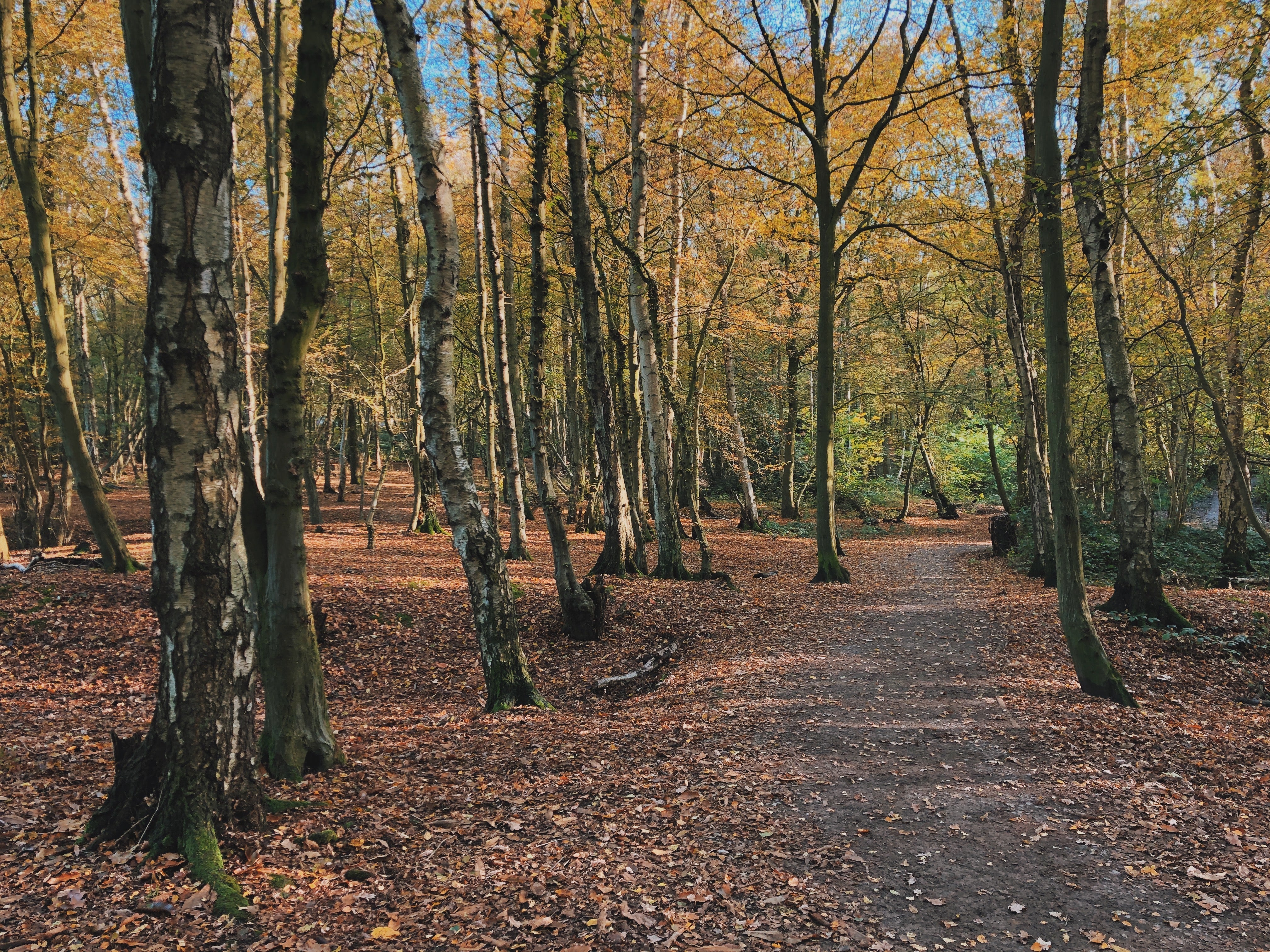How I found solace in a Hertfordshire forest
Mary Novakovich used to take her local wood for granted. During lockdown, it became a place of salvation for the community


It all started with a small stuffed toy sitting on a tree branch, with a note attached saying: “Please take me home, wash me and love me.”
I spotted several more as I walked through the woods near my home in Hertfordshire, heightening the sense of unreality that came with the first lockdown last March. In those early days, the woods were nearly empty, only a handful of walkers and their dogs passing each other – at a safe distance – with a feeling of camaraderie, of relief that some of us were allowed out for what became an utterly necessary hour of exercise. The thoughtful soul who planted the stuffed toys in an impromptu treasure hunt might not have known how much pleasure this gesture gave the grown-ups as well as the children.
In this ancient woodland of oak, birch, hazel, hornbeam and ash, wood anemones were already turning the ground a creamy shade of white. In only a few weeks, bluebells would transform the forest floor into a sea of purplish blue. The weather gods were kind to us that spring, bringing us warmth and seemingly endless blue skies. Our daily outings took us further and further afield, with the woods as the starting point, as our hour-long walks turned into three- or four-hour hikes. Like most people, we discovered how much more there was to our own patch than we had realised. New fields, footpaths and forests were stumbled upon, more footbridges and tunnels traversed, new brooks found to sit beside and have a picnic.
But we always came back to the woods. Before the pandemic, the woods were a bit of a standby walk, usually for rainy or windy days when the trees could offer some shelter. They were taken for granted, in a way. But as walking became a vital way to keep our mental as well as our physical health intact, the woods became a place of solace, a place to think, to clear the head.
It became a place to watch the seasons change, as bluebells and golden saxifrage gave way to bramble flowers that promised juicy blackberries later in the summer. When autumn started to approach, the trees turned the sky red and golden while, down below, the enormous number of mushrooms made me wish I knew how to forage for fungi without killing anyone. At Halloween, someone got into the spirit of things by planting ghostly white figures made of thick string – as if The Saint’s logo had wandered over from a Sixties TV screen and got lost in the forest.
The leaves must have known we were starved of colour and took their time dropping, covering the forest floor in a crunchy layer. Red berries on holly trees and bushes did their bit by adding some bright new tones for the winter. When incessant rain turned all my other stomping grounds into quagmires that made walking not just difficult but downright dodgy, the forest’s sturdy footpaths were still there. They were getting busier, though, with more people needing their fix of nature. We all (well, most of us) did elaborate dances to avoid getting close to one another, even the joggers (well, most of them) doing their part.
But even when I would do a bad-tempered stomp off the footpath and into the muddy verges to keep my distance from people who WOULD NOT GET OUT OF THE WAY – DON’T YOU KNOW THERE’S A PANDEMIC ON? – something would come along to lift my spirits, or make me think. On Christmas Day in the woods, under beautiful blue skies, I spotted a golden bauble hanging in a tree, right at eye level. Someone had written on it in black marker: “Better times are coming.” A few minutes later, another bauble turned up: “And … breathe.” I walked a little further on; another one: “You are never alone.” It sounds cheesy, as if a platitude fairy had flown into the forest via a Hallmark card. But I found myself being cheered by this, and thought of the person who had taken the time to bring a little compassion into the woods.
I carried on along the path and saw some flowers laid on a broad tree trunk. Covered in protective plastic was a Christmas card written by a grieving family to a stillborn son. They, too, had found the woods to be a place of refuge, a place of comfort: something always changing, but always staying the same.
Join our commenting forum
Join thought-provoking conversations, follow other Independent readers and see their replies
Comments